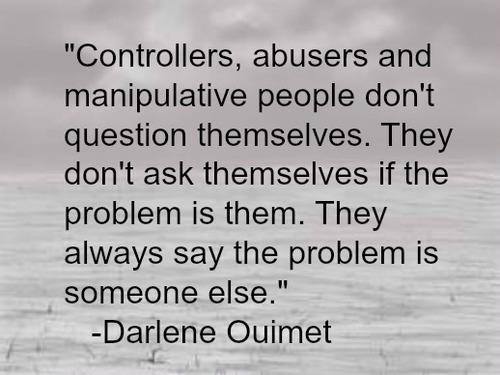by Vanessa | Oct 17, 2014 | Adolescents, Adversity Expert, Business, Career, Change Management, Community, Controlling People, Family, Family Rules, Health, Healthy and Behavior, Human Behavior, Human Rights, Life, lifestyles, Living, Manipulative People, People Skills
October is National Bullying Prevention Month, and, while most of the attention concerning the topic focuses on children in schools, adult bullying is a serious issue too. Bullying is an abusive behavior that involves intimidation and aggression with the bully’s intention to control another individual. The behavior is often repeated and habitual. The objective is to dominate and show some form of power psychologically, socially and/or physically. Often times people only think of bullying within the context of children in schools. While that is an ongoing issue that needs attention there are adults who are bullied that need to have their voices heard too. Manipulative adults abuse in many of the ways children do. However, it happens within the context of family, workplace, universities or colleges and cyber space. The four types of bullying include: 1. emotional and psychological 2. verbal; 3. physical; and, 4. cyber. Verbal abuse can be just as damaging as physical and psychological abuse; therefore, it should not be dismissed because it’s not hands on. Bullies usually target their victims based on differences in socioeconomic status, image, demeanor, ethnic background, physical build, social status, gender, faith, political views and abilities. Race and gender are protected classes of people and are protected by certain laws in the U.S. Bullying can be person-to-person or it can occur in groups. It is referred to as peer abuse when it happens at school or at one’s job. It oftentimes involves abuse such as subdued behavior that isn’t immediately obvious. There are possibilities for bullying anytime human beings have contact or interact with each other. Notable environments include communities, homes, place of employment, schools, grocery stores, school...

by Vanessa | Jun 5, 2014 | Adversity Expert, Change Management, Christians, Clerygymen, Community, Controlling People, Darkness, Family, God, Healthy relationships, Human Potentials, Human Rights, Jesus, lifestyles, Manipulative People, Ministries, Mother Daughter Relationship, Motivation, Parent Child Relationship, Parenting, Pastors, Psychics, Religion, Spirituality, Witchcraft, World Religion
Psychological bullying is pervasive; however, there are ways to identify and handle manipulative people who use others for personal agendas. Psychological manipulation can be described as “undue influence” through emotional abuse and mental exploitation, with the intention to gain power, control, advantages at a targeted person’s expense. Whether it’s spiritual, pastoral, platonic, intimate, family, business, or friends, all healthy relationships involve love, respect, and, mutual concern for the well being of the other person. Most people experience healthy reciprocation of giving and taking. It occurs when there’s a balanced exchange of benefits and privileges. However, when there’s an imbalance in what is exchanged emotionally, psychologically, physically, spiritually, or financially by parties, one person is being psychologically manipulated and is used for the benefit of another. The manipulator intentionally devises a plan that creates unfair leverage of power, and exploits the targeted person for the purposes of fulfilling or accomplishing his or her plan of action. ABC’s 20/20 recently did a story about how millions of people who are hurting and in difficult situations are manipulated by psychics, readers, witchcraft workers, and, witches everyday. People spend millions of dollars seeking answers to heart felt questions that they never get. Take a look at 20/20’s story: http://abcnews.go.com/US/private-investigator-helped-recover-2m-psychic-fraud-victims/story?id=23348889. God is THE only true, wholesome, full spectrum answer to your problems. You must always question the integrity of information when you are paying for it. Pick up the King James version of the Holy Bible and read, study, learn for yourself. Accept Jesus as your Lord & Savior and ask God to come into your life, and heart. Seek Him for help. In...



Recent Comments